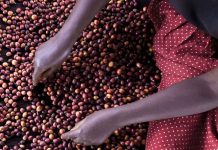Investors have poured over $10 billion into AgTech ventures since 2014, despite a dip in total funding in 2016, according to a report from AgFunder.
Last But Not Least
Agriculture may be the least digitized industrial sector in the world (McKinsey see figure), but the nearly $8 trillion industry remains cemented in its place for investment capital interest and innovation.

In 2015, agricultural technology, or AgTech, investments reached $4.6 billion after rising three years in a row, according to AgFunder, an online marketplace that tracks sector.
In 2016, while AgTech dipped by 30% to $3.2 billion according to the new report by AgFunder, the actual number of deals actually grew by 10% from 526 to 580 year over year. Counting 2014’s contribution, AgTech investments have thus reached $10 billion.
AgTech is no longer a unique niche that nobody is paying attention to. Yields today are falling with climate change concerns materializing and human populations rising – clearly more innovation is needed. “We’re on the cusp of the next agricultural revolution,” says Louisa Burwood-Taylor, AgFunder’s head of media and research.
Why This Matters – the Future and Costs of Food
Innovations in agriculture, no one would argue, is vital. The industry’s crops and livestock feed every human on the planet. It represents 10% of global GDP, employs close to 40% of global labor, and contributes 30% of the world’s greenhouse gas emissions, making it a prime target for SRI and SDG.
In response, new impact funds are seeking financial returns from the production of forest and agricultural goods. These returns can be boosted by environmental markets that pay for stewardship practices that have social and environmental benefits that promote the triple bottom line. So-called carbon offsets are one good example.
Investor groups are also diversifying to include private investors, companies focused on supply chain investments, and public development agencies that are motivated by sustainable development, ecosystem services, and social benefits. With diversification comes decreased risks to investors, which is particularly crucial in emerging markets.
Lastly, third-party certification standards like the Verified Carbon Standard, Forest Stewardship Council, and Rainforest Alliance have emerged. While there is no universal standard, funds develop their own impact metrics to satisfy investors’ demands for assurance that their investments have impact.
A Sampling of Ventures
Twelve noteworthy ventures being invested in:
Agronomic Technology – software tool for agronomists combining data on soil types and weather with crop modeling and field management to produce detailed fertilizer prescriptions. $2.75 million in funding from three investors. Based in New York, New York.
AgDNA – cloud-based farming app to automate data collection off farm equipment using GPS, aiding farmers better manage and control their farm investments. No data in funding, attempted raising $2.5 million in 2015. Based in Brisbane.
AgBiome – is using microbiome research to manufacture bio-fungicides (to replace synthetics) and identify plant-associated microbes that enhance plant health, pest resistance and yield. $71.5 million in funding. Based in Raleigh, North Carolina.
Anuvia – a novel slow-release uniform nutrient delivery system with little to no loss due to leaching, as is common in golf turfs. $23 million in funding. Based in Zellwood, Florida.
Benson Hill Biosystems – a “cognitive engine” platform that promises to breed new seed traits in half the time it typically takes. Raised $25 million in funding on March 28, 2017 to total $34.35 million. Based in Raleigh, North Carolina.
Blue River Technology – a robotic sprayer that recognizes and reacts to the needs of individual plants. Raised over $30 million in funding from nine investors. Based in Sunnyvale, California.
FarmDog – a data-driven digital tool coupled with an app that helps manage pest and disease. See their videos. Raised over $860K in funding. Based in Tel Aviv, Israel with offices in California.
FarmersEdge – provides a platform and scientific tools to identify and map field variability, optimize crop inputs, resulting in higher yields, better quality and less environmental impact. $103.5 million in funding from four investors. Based in Winnipeg, MB.
FreshDirect – delivers fresh groceries and links consumers to food production. $280 million in funding from seven investors. Based in Long Island, New York.
Indigo Agriculture – manipulating microbiomes and microbes to increase yield and help crops grow. $156 million in funding from two investors. Based in Cambridge, Massachusetts.
Indira Farms – offers modular cold storage and food processing units, which run on off-grid renewable energy, to remote crop production farms in East Africa and South America, where lack of cold storage places limits on product yield, shelf-life and revenue potential. $1.76 million in funding from five investors. Based in the UK.
Spoiler Alert – an B2B online platform selling food seconds to businesses, with real-time capabilities to create and manage food donations, buy-sell transactions, and distribution networks. $2.6 million in funding from seven investors. Based in Boston, Massachusetts.
The Autonomous Tractor Company – a self-driving tractor kit for transforming regular tractors into self-driving tractors. No data on funding. Based in Fargo, North Dakota.
The Yield – IoT and predictive analytics startup for aquaculture and agriculture, has raised $6.5 million in Series A funding. Based in Australia.
Bottom Line – Momentum
Investors and startups across the planet are heeding the signs to AgTech’s opportunities and ever-pressing need to feed the human demand for more food.
U.S. deals accounted for 48% of dealflow in 2016 compared to 58% in 2015 and 90% in 2014. China and India drove funding in Asia. Canada saw 40 startups complete deals, up from 25 in 2015. The UK saw AgTech deals increase from 19 in 2015 to 28 in 2016. New accelerator programs are getting initiated in other parts of the planet, such as in Latin America.
This all means that AgTech funding activity is likely to continue to diversify globally into 2017. Venture capital funds like Bridges Ventures, Mission Point Partners, Omnivore Partners, Closed Loop Capital, Fifth Season Ventures, Belgium-based agRIF which this past week announced a $120 million fund, and the FruitGuys Community fund, recognize these trends and are underwriting deals so AgTech may grow to become a key destination for impact investors.
Sources: Crunchbase, Conservation Finance Network, McKinsey, AgFunder News, More AgFunder Ventures, Global AgInvesting








